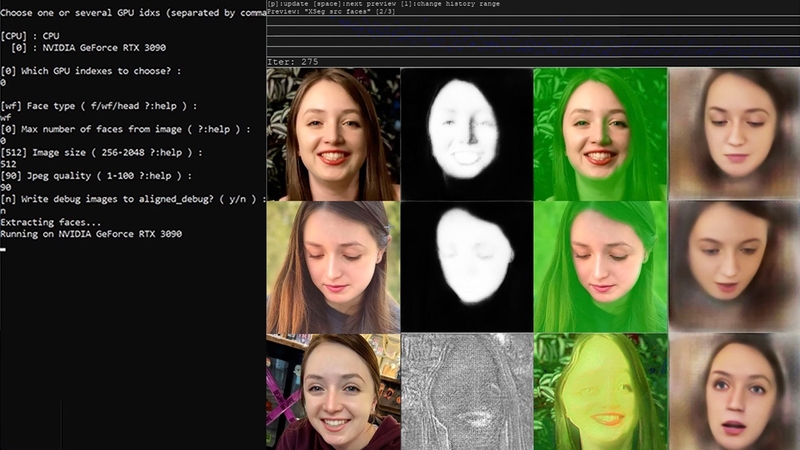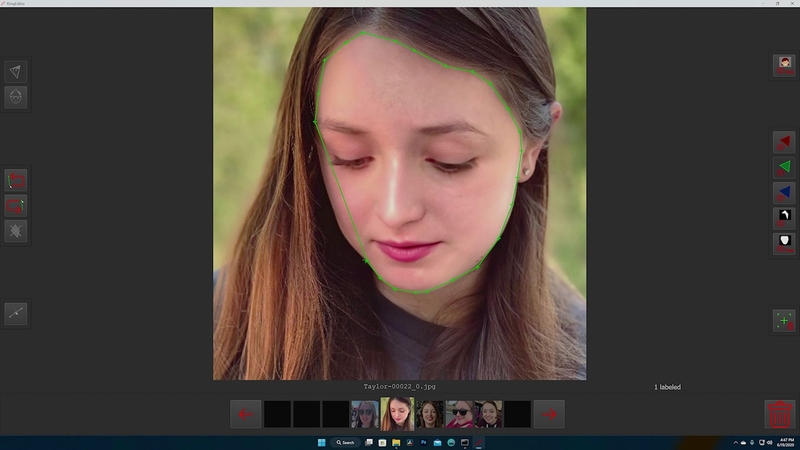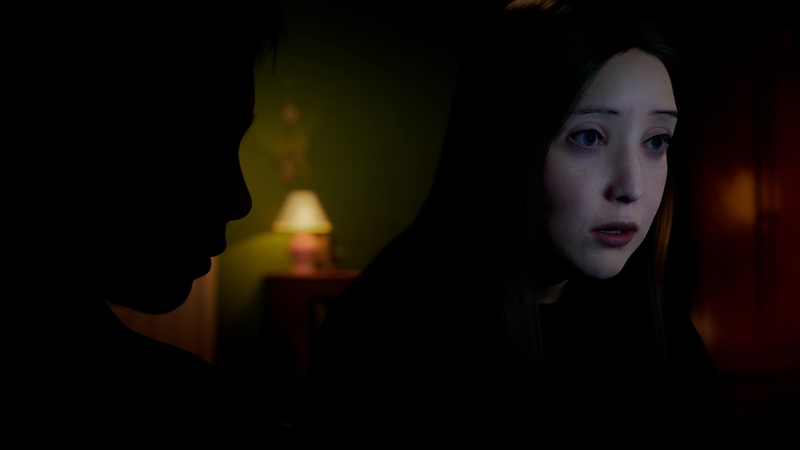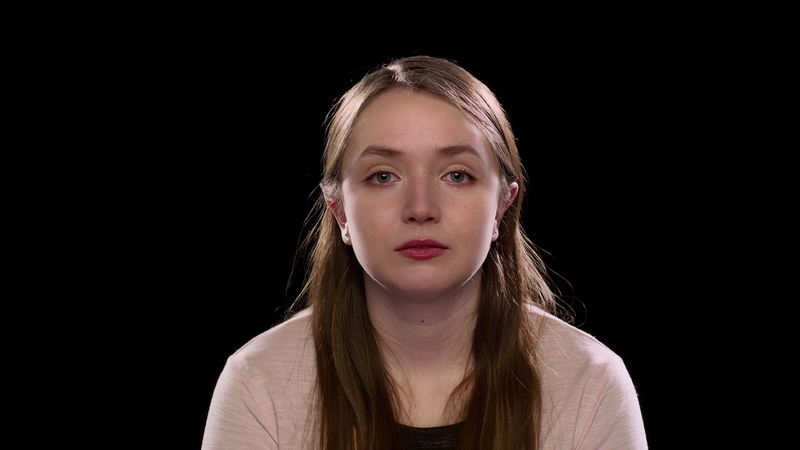Jihlava 2023 Review: ANOTHER BODY Lays Bare Weaponization of Deepfake Porn
Sophie Compton and Reuben Hamlyn's film explores the alarming rise of non-consensual deepfake pornography.
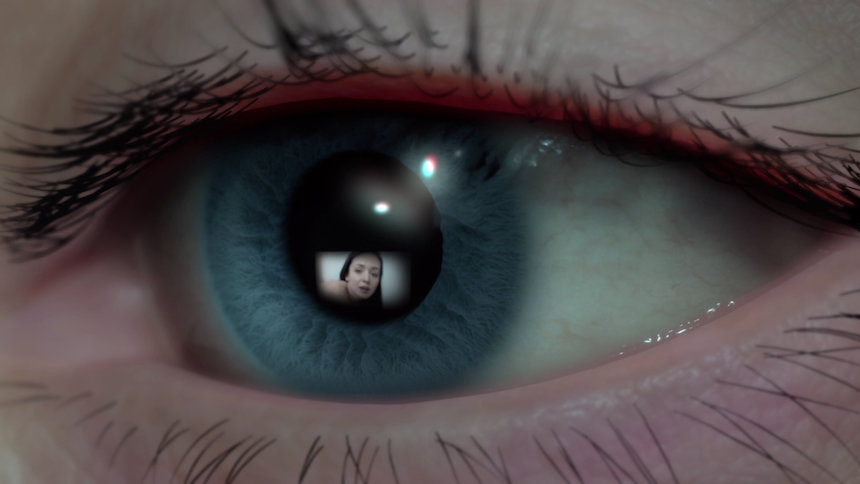
In the wake of AI tools becoming more accessible, filmmakers Sophie Compton and Reuben Hamlyn delve into the evolving issue of non-consensual pornographic deepfakes in their documentary Another Body.
The film, inspired by actual events, provides an insightful examination of the profound impact these deepfakes have on victims, predominantly young women. It highlights the disturbing reality of privacy invasion, psychological trauma, and exploitation, underscoring a pressing societal concern.
The documentary by Compton and Hamlyn features the story of 23-year-old engineering student Taylor, whose life was profoundly disrupted upon discovering pornographic deepfakes with her likeness circulating online. Initially popularized through the creation of celebrity-focused deepfakes, this AI technology, though still non-consensual in nature, gained significant attention.
As AI tools become increasingly accessible, the film illustrates how they are being misused to target individuals, merging the unsettling practices of likeness violation and doxing. This phenomenon represents a new, troubling frontier in digital privacy and personal security.
Another Body serves as both a detailed case study and a cautionary tale, centering on Taylor's encounter with the rapidly escalating issue of non-consensual deepfake pornography. Filmmakers Compton and Hamlyn present a narrative that is both deeply personal and widely relevant, tracing Taylor's journey from her school days and her aspirations in engineering, to the shocking discovery of her deepfake images.
The documentary follows her interactions with law enforcement, her collaboration with an advocate fighting non-consensual pornography, and her own online investigation to uncover the identity and motives of the perpetrator. The film maintains a compelling narrative throughout, intertwining Taylor's personal ordeal with a broader social context. As Taylor uncovers more victims during her exploration of various internet platforms, including the depths of 4chan, her story becomes increasingly emblematic of a pervasive and troubling trend.
Taylor's experience, as depicted in Another Body, highlights the unsettling ease with which unsavory deepfake videos can be created using the images of individuals readily available on various social media platforms.
The film not only illustrates the dangers inherent in the digital footprints we leave online but also offers insights into the dos and don'ts of online behavior in this context. Watching the documentary is akin to experiencing a real-life episode of Black Mirror, where Taylor is seen striving to protect and reclaim her identity and life. She confronts the challenge of curtailing the spread of these videos while persistently seeking out those responsible for this nefarious act.
The investigation portrayed in Another Body is marked by its complexities and unexpected developments. Early in the film, it becomes evident that existing legislation is woefully inadequate in addressing the issue of non-consensual deepfakes, effectively leaving perpetrators to operate with impunity.
A particularly striking moment in the documentary, though not in a humorous sense, occurs when the police contact a suspected producer of these videos, merely requesting they cease their activities. This episode underscores the stark contrast between the rapidly advancing technology and the lagging legal framework meant to protect individuals online. The documentary suggests a concerning outlook for the future, especially when considering the potential implications of emerging technologies like quantum computing.
As Taylor delves into an array of homemade deepfakes featuring women from various backgrounds, including students and mayors, spanning diverse ages, ethnicities, and professions, she uncovers a disturbing pattern. Her investigation reveals that women in positions of influence or power are frequently targeted, highlighting a deeply ingrained issue of misogyny and the systematic victimization of women online.
In the course of her research, Taylor encounters a familiar face from her offline life: Julia, who also discovers her likeness has been used in explicit videos without her consent. Julia joins Taylor in her quest to identify the perpetrator, contributing her insights. Together, their observations help to narrow down the search and inch closer to identifying the individual responsible for these invasive acts.
The disconcerting aspect of non-consensual deepfake pornography, as explored in Another Body, lies in the ease with which individuals can be violated, humiliated, and traumatized, contrasted with the formidable challenge of protecting oneself once the damage is done. This issue has previously been addressed in the context of revenge porn.
However, Another Body broadens the scope of documentaries examining the influence of internet culture and technology, aligning with works like Arthur Jones's Feels Good Man, which delves into conspiracies, political memes, and white supremacy, and Rodney Ascher's Glitch in the Matrix, exploring beyond simulation theory.
Sophie Compton and Reuben Hamlyn's documentary could be seen as a complement to Feels Good Man, particularly in its portrayal of rampant misogyny within incel communities, where members engage in systematic abuse of women using deepfake porn.
The film emphasizes that non-consensual deepfake pornography extends beyond the realm of materializing unsanctioned sexual fantasies; it is a means of abuse, shame, and humiliation for women, with profound and traumatic impacts in both the digital and offline worlds.
In a move to safeguard the privacy of the victims, the directors chose actresses Faith Quinn and Julia Weinberg to reenact Taylor's case. To maintain anonymity, the actresses appear behind "face veils," and the filmmakers employ deepfake technology to represent their protagonists. This approach not only preserves the subjects' privacy but also demonstrates the deceptive and hard-to-detect nature of deepfake technology.
Another Body extends beyond mere documentation of this burgeoning phenomenon; it serves as an activist film advocating for regulatory measures against deepfakes. It aligns with the #MyImageMyChoice campaign, which aims to catalyze both legal and social reforms in response to the challenges posed by deepfake technology.
The film enjoyed its Czech premiere recently at the Ji.hlava International Documentary Film Festival. Visit the official site for more information.
Another Body
Director(s)
- Sophie Compton
- Reuben Hamlyn
Writer(s)
- Sophie Compton
- Isabel Freeman
- Reuben Hamlyn
Cast
- Ava Breuer
- Faith Quinn
- Julia Weinberg



